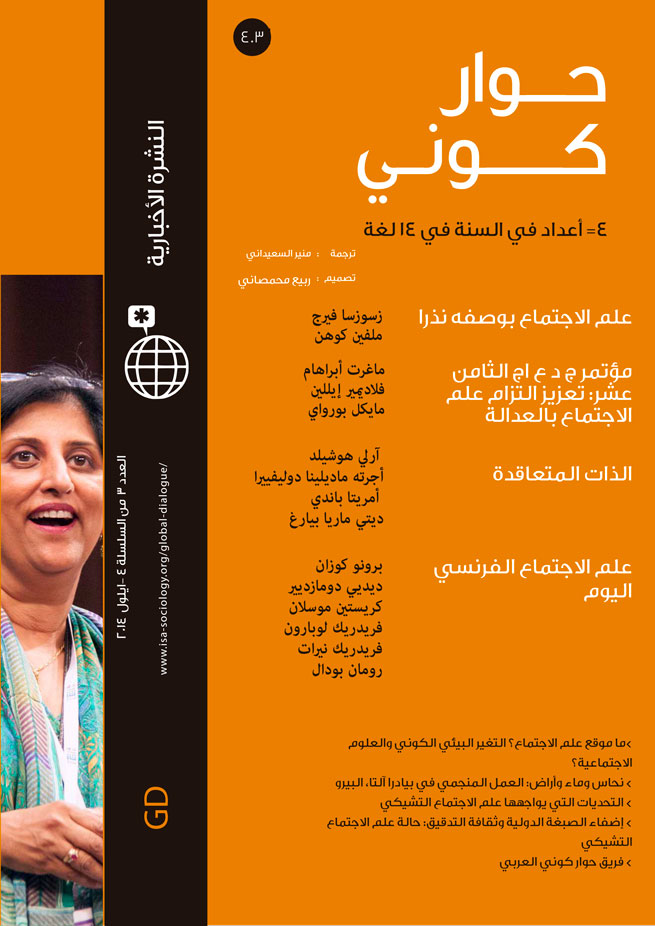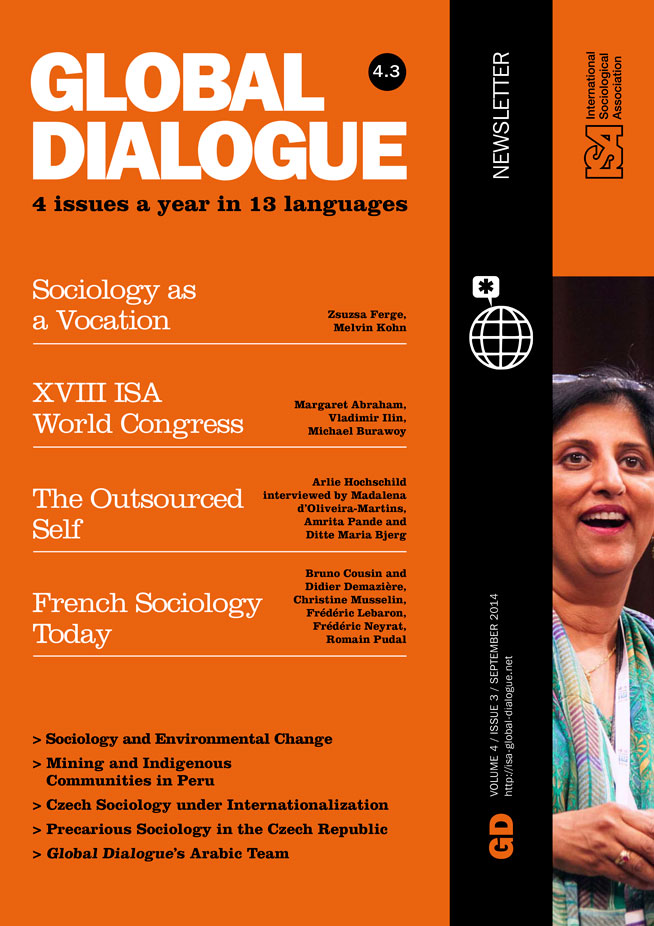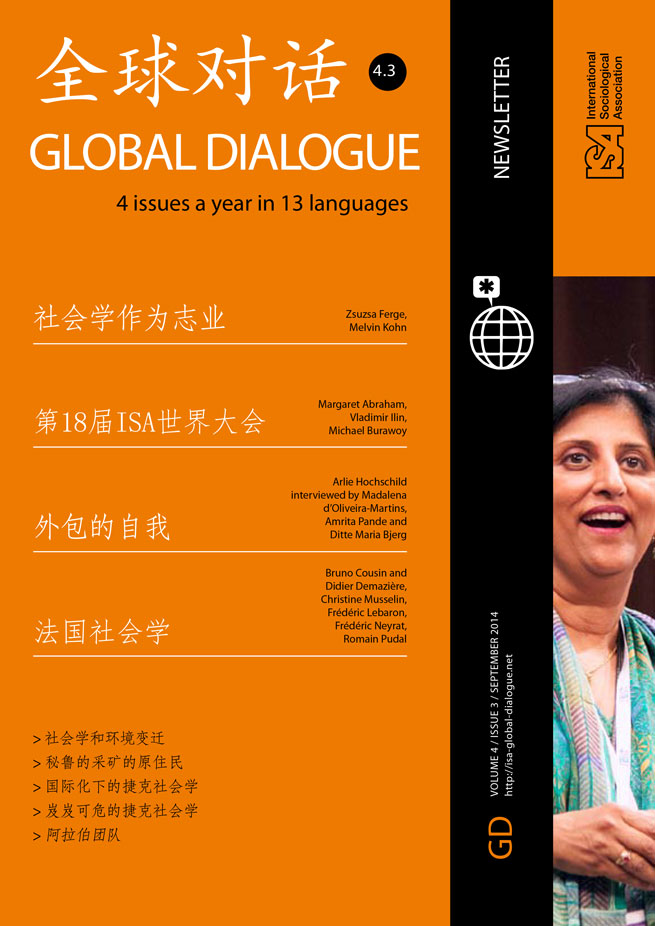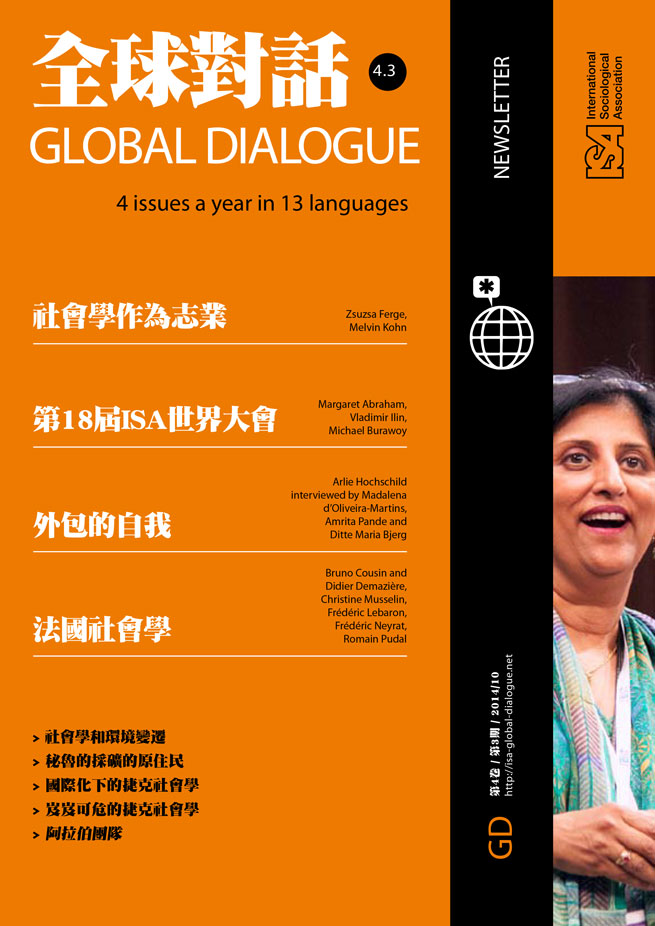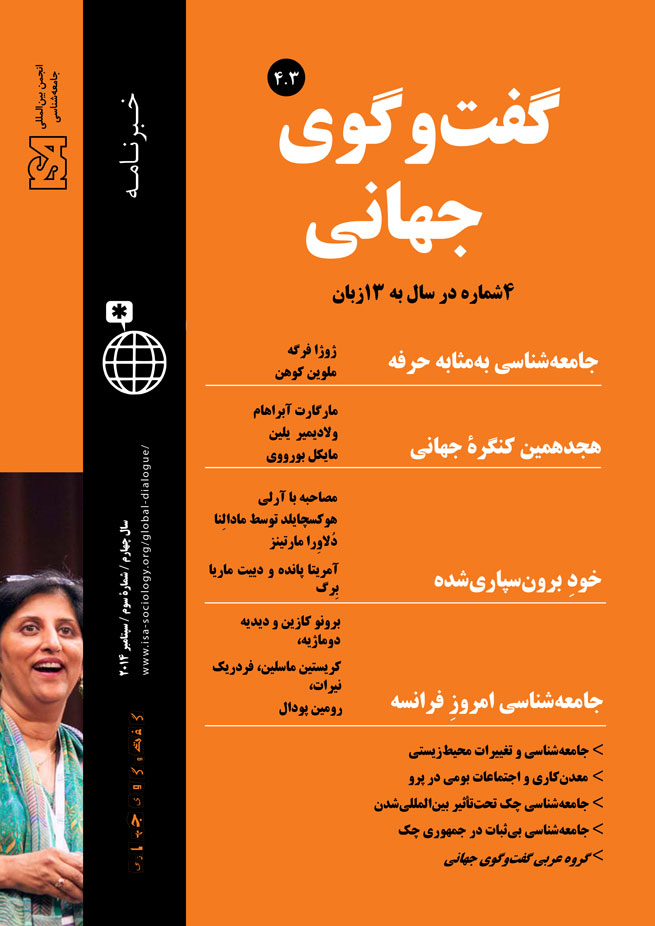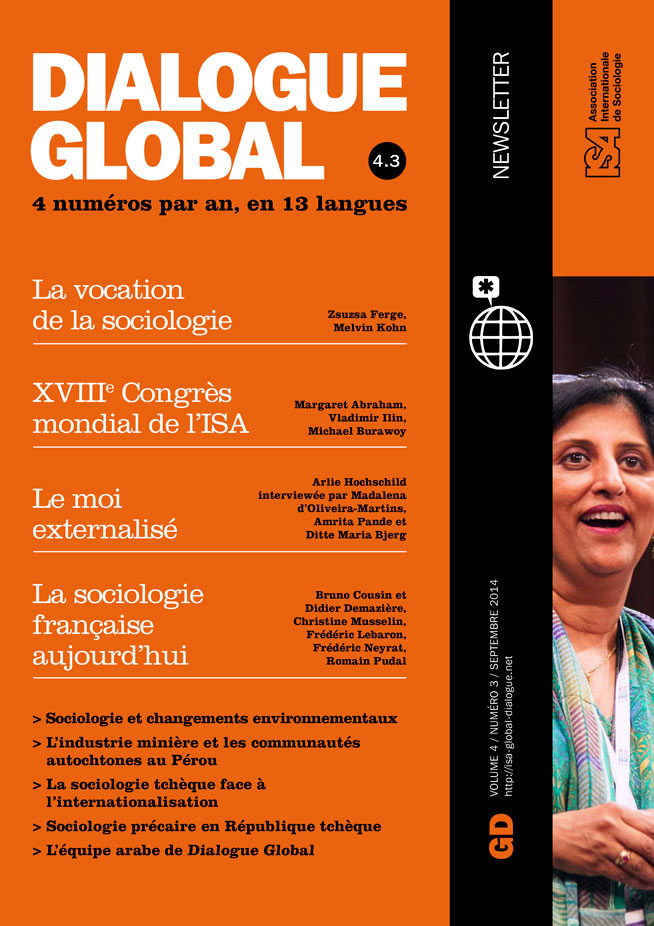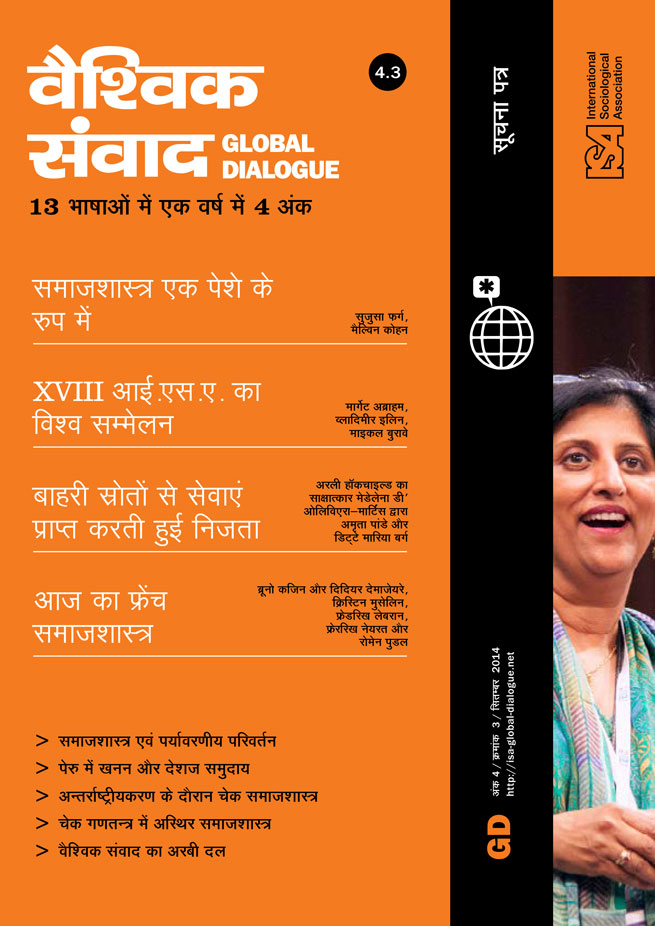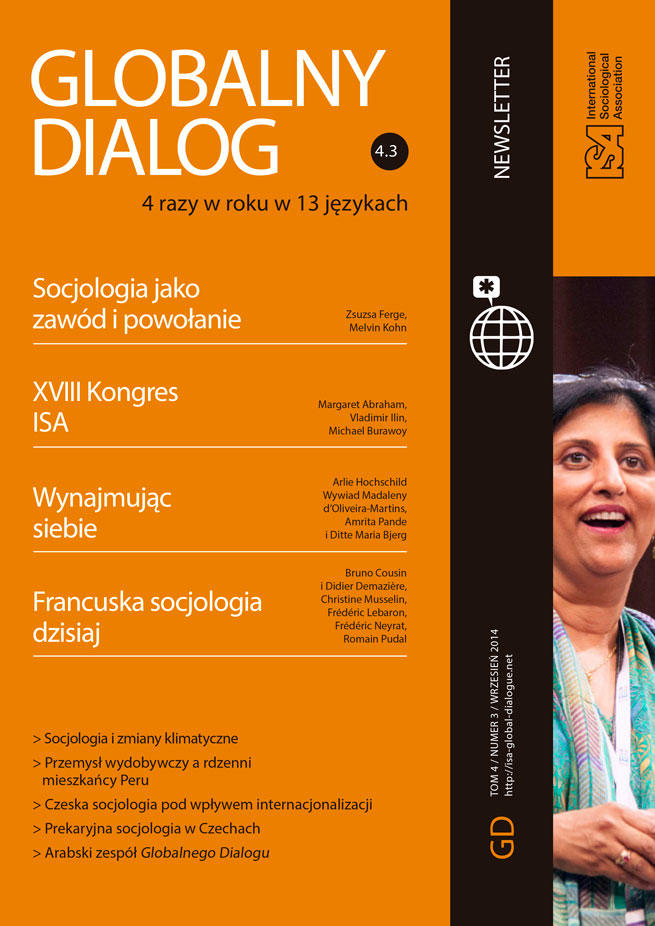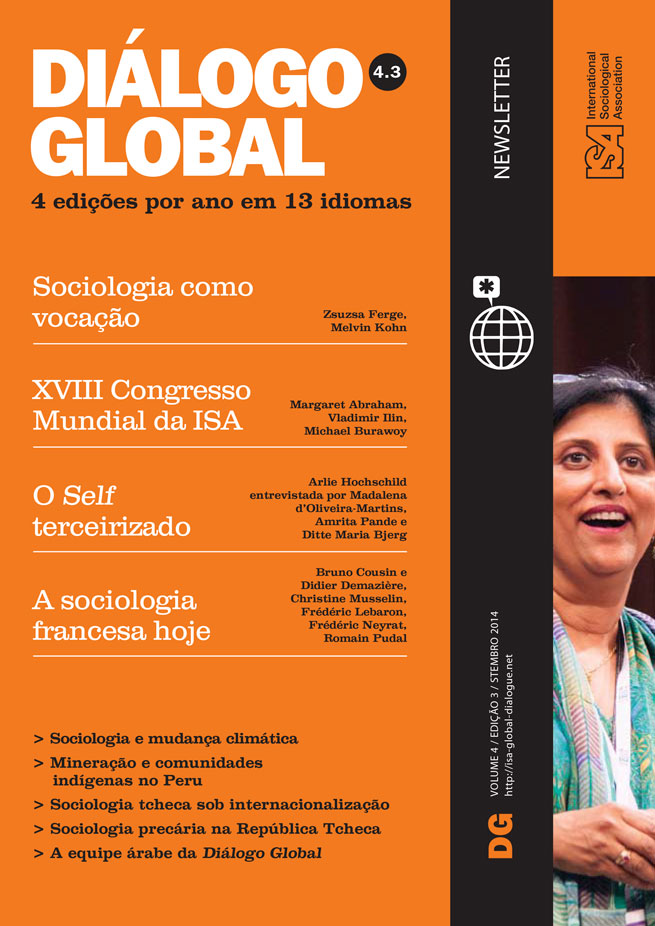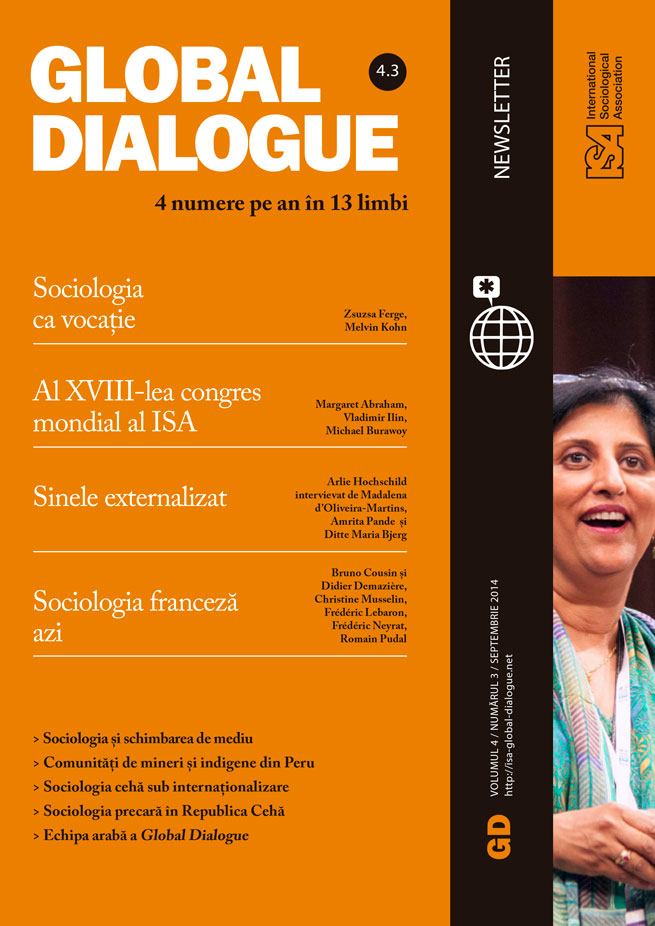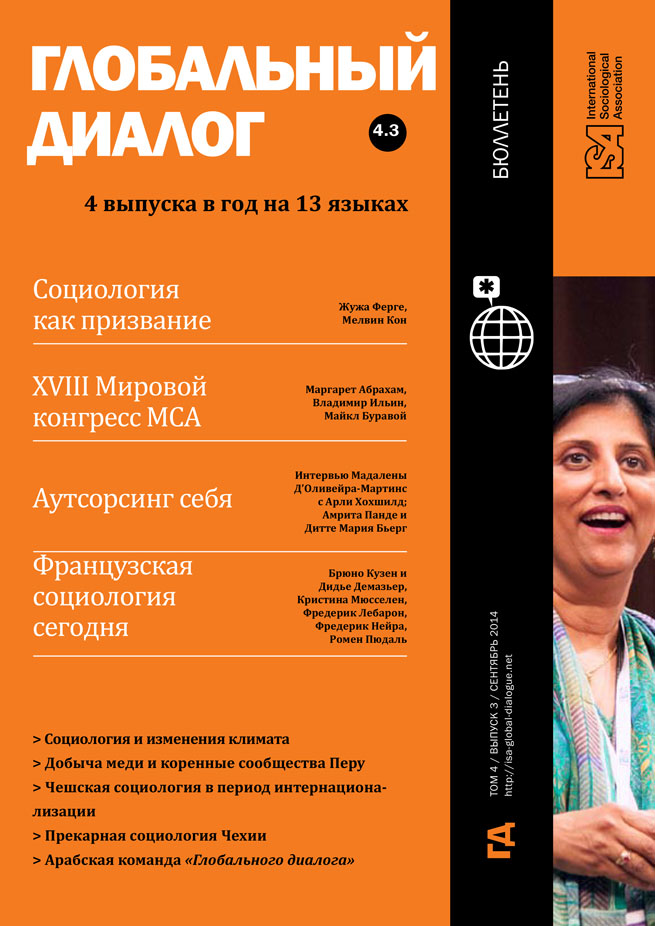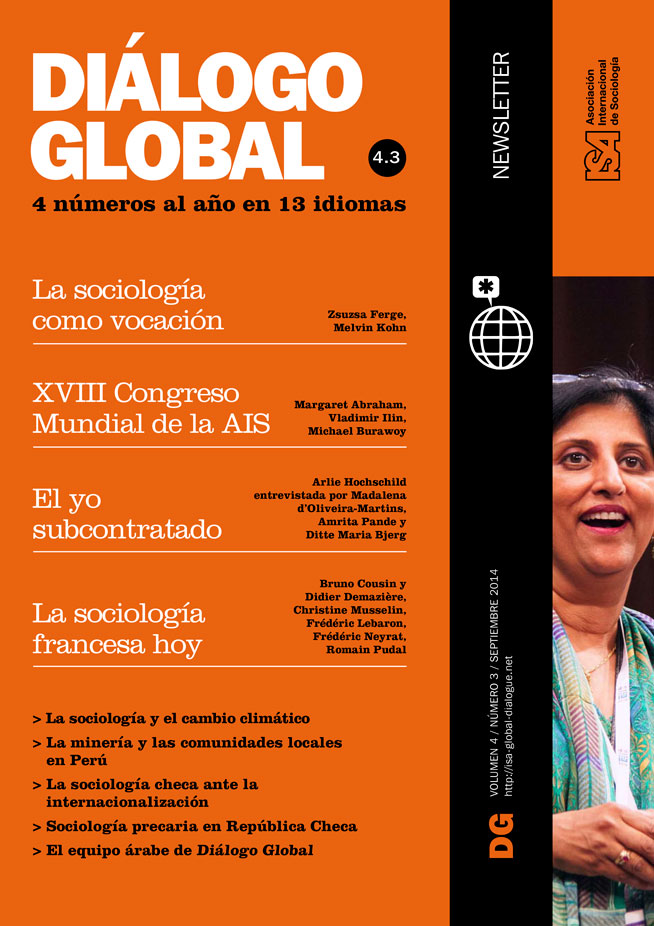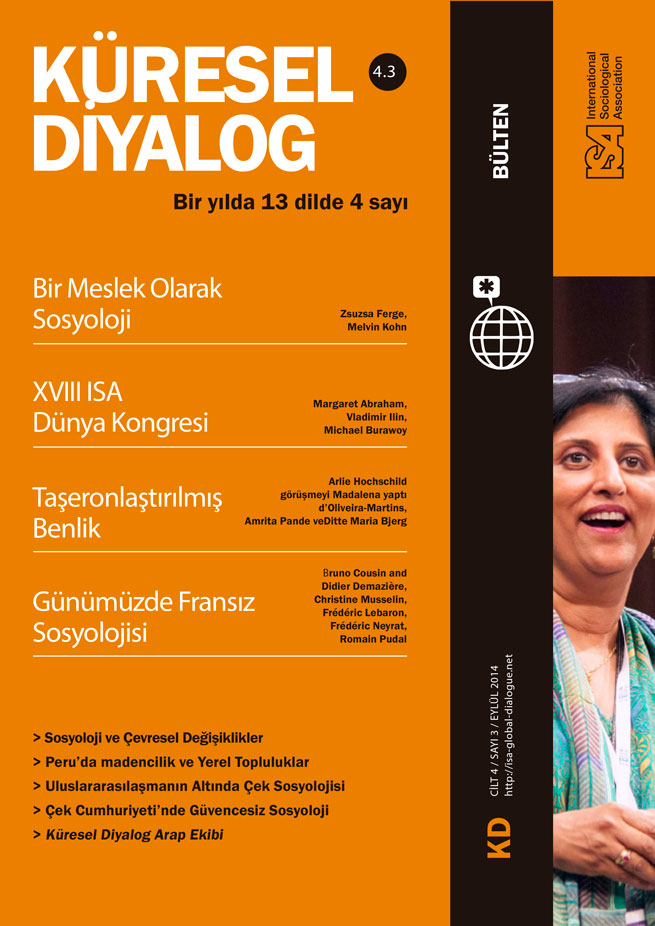Read more about The Outsourced Self
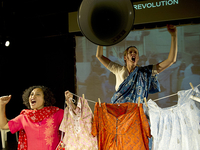
Made in India: Sketches from a Baby Farm
by Amrita Pande and Ditte Maria Berg
September 08, 2014
Arlie Russell Hochschild is one of the most renowned sociologists of our time. Her work is proof that theoretical depth combined with accessible discourse is an effective strategy for accomplishing fruitful sociological inquiry. In her eight academic books – including The Managed Heart (1983), The Commercialization of Intimate Life: Notes from Home and Work (2003), The Outsourced Self (2012), and the most recent So How’s the Family? And Other Essays (2013) – Hochschild examines how emotions can help us understand the relationship between the micro and macro spheres of social life. Original concepts such as “emotional management,” “emotional labor,” and “feeling rules,” are key to grasping the depth of analysis achieved in her work. In this interview, Hochschild reveals herself to be at once charismatic and down-to-earth. Talking to the American sociologist one can easily recognize that she is a free spirit with an eye – and heart – on the main social issues of our time. Madalena d’Oliveira-Martins, a Portuguese researcher at the Institute for Culture and Society, University of Navarre, Spain, conducted the interview in Berkeley, California, on February 27, 2014.
MO: You were a graduate student at Berkeley during the 1960s. What was your perception of what was going on and how did that affect your sociological perspective?
AH: In October of 1962, I’d recently arrived in Berkeley. The Cuban Missile Crisis was looming and the Cold War between the Soviet Union and the US had suddenly grown hot; President Kennedy and Nikita Khrushchev were threatening a nuclear showdown. One day I bicycled to the central plaza of the campus and discovered that it was filled with throngs of students, teaching assistants, professors huddled in small groups – ten people here, twenty there, engaged in intense conversation. Are we facing the possibility of a nuclear holocaust? What can a peace movement do? Everyone was publicly engaged. I felt, “This is where I want to be.” Later it occurred to me this might be what Habermas had in mind: reasonable discourse in the public square. Not long ago I was walking in the same plaza and saw students passing each other, cell phones to their ears. They were talking, but not to each other. I felt the absence of that public square. Some face-to-face group conversation has moved on-line, of course, but in the process, it may have thinned out that immediate sense of common purpose. In whatever form, I think we need more of that magical, shared ’60s optimism about changing things for the better.
MO: One of your central concepts is emotional labor – the work of evoking or suppressing feeling so as to feel “the right feeling for the job.” Can you tell us what that concept illuminates?
AH: In societies with a growing service sector, that concept illuminates the daily reality of many jobs – nannies, daycare workers, eldercare workers, nurses, teachers, therapists, bill collectors, policemen, workers in call centers. Less and less are modern economies based on felling trees, drilling wells, manufacturing stuff; more and more, they are based on face-to-face, voice-to-voice, interaction needed to provide services. Those interactions call for emotional skill.
MO: Looking at your essay “Love and Gold” in Global Woman, and your essay “The Surrogates Womb” in So How’s the Family? it seems to me you’ve taken “emotional labor” around the world. Is that right?
AH: I’ve been tracking nannies and eldercare workers in the Global South who leave their children and elderly in order to care for children and old people of the Global North, forming “nanny chains.” Inspired by the work of Rhacel Parrenas, I’ve interviewed Filipina nannies in Redwood City, California, who’ve hired their own nannies to care for their children back in Manila, creating a “chain” of nannies – at the end of which is a child of the Global South on whom the brunt of the global system rests.
MO: You call the result of all this a “global heart transplant,” right?
AH: Yes, the expression of a woman’s heart in one context is diverted to another. This diversion calls for intense emotional labor. The transplanted nanny manages her sense of loneliness, isolation, and even confusion about feeling more emotionally attached to the baby she cares for during long hours in a Silicon Valley employer’s home than she does to her own child – whom she hasn’t seen for five, six, seven years – left with a sister back in Manila – or San Pedro Sula, Michoacan or elsewhere in the South. The nanny’s wages pay her child’s school fees, but the child him or herself may feel hurt, depressed, angry, or even somewhat detached.
MO: And you’ve written about Indian commercial surrogates who are trained to think of their wombs as carrying cases.
AH: Yes, some of the most moving interviews I’ve done have been with commercial surrogates in Anand, India – poor women in whom a couple’s embryo is implanted and who carry that baby to term for $3 to 5,000 for domestic or foreign clients. Drawing on those interviews as well as work by sociologist Amrita Pande[1], I describe the world’s largest womb rental service. Out of financial need, the surrogate manages her emotional ties to her own body – whose womb is it if it is the doctor and client who authorize eliminating extra fetuses? – and with the baby she carries, gives away but long remembers. Nannies and surrogates face the challenges of emotional estrangement. In the 19th century, Marx gave us the powerful image of the alienated male, European factory worker. I offer an update to that model: the 21st century, female service worker from the Global South.
MO: You’ve written about “empathy maps” and the German sociologist Gertrud Koch dedicated her book, Pathways to Empathy, to you. What’s an empathy map?
AH: It’s a social space we envision enclosed by boundaries separating it from other social spaces. We empathize with those inside that space, and not with people outside it. Two groups of people can be equally capable of empathy and equally active at the hidden practices which enhance empathy but, given their different maps, refuse empathy to one another. To expand our maps, we need to feel our way across the boundaries we set between them. I’m keenly interested in just how we do that.
MO: In your article “The Sociology of Feelings and Emotions” (1975) you named a new subfield of sociology, the “sociology of emotions.” Was this an important step for recognizing a habitus that needed attention?
AH: Yes. Emotion is the heart of what sociology is. If we are political sociologists, we need to ask about the feelings behind a political belief and where they came from. If we are economic sociologists, we need to ask what feelings animate our beliefs about the economy, our consumer preferences, the cheers and tears on the stock market floor. Every subfield of sociology has emotion at its core. I’m proposing that we focus on that core in highly nuanced ways. A number of trends were in the air in the 1970s when this idea occurred to me. A massive shift of women into the workface called for a changing notion of womanhood, feeling rules and emotion management. Sometimes women had to change – it didn’t do to be a shy and deferential trial lawyer – and sometimes women changed the office atmosphere by legitimizing care. The service sector was on the rise. Corporations were getting bigger, and calling for new forms of emotion management to deal with relations in and outside the company – with the rising cult of private life, an increased fragility in family life, and removal of former buttresses to it, more hinged on getting good at figuring out emotional relationships. All these trends made me realize we need to develop the concepts that permit us to explore this emotional core of social life.
MO: Did you worry about the treatment that emotions were given in psychology and other sciences?
AH: Oh yes. Even one of my mentors, Erving Goffman. He, other colleagues and I were riding in a car and laughing at a joke – he was teaching at the University of Pennsylvania and had come back to California for one of his periodic ski trips – and Erving turned to me and said, “Arlie, all of these emotions in the car.” As if to say, “How can you study emotions scientifically? It’s not possible.” He was a Mr. Science guy, with a black box – you can’t talk about a person’s interior – approach to psychology. And yet, he talked brilliantly about that interior all the time and gave us highly important tools to build on.
MO: In the same article you proposed a concept that was missing from classical formulations in sociology, “the sentient self,” an image suggesting that for the study of emotions it is necessary to take into account the active role of the individual. Is the meaning that emotions carry the result of evaluative thoughts? Do they derive from evaluative thoughts or from drives and instincts?
AH: The answer is “both.” On one hand, I see emotions as a sense, like eyesight, like hearing, like touch. It’s there in babies. But biological determinists end the story there. The sociological task is to take it from there, to name and study the different ways we pay attention to feelings, label feelings, assign meanings to those labels, hear and respond to those meanings. Psychologists of perception don’t say, “We have eyes, end of story.” They study how we learn to see.
I had the chance to talk to a man from Lapland who described his experience of walking along a path in the dead of winter above the Arctic Circle. “Sometimes you’re surrounded by white snow,” he said, “and suddenly you’re startled by two black eyes. It’s a snow bird! And then you look for those two black eyes. You prepare to see it again. You see snow differently.” We do the same thing with our feelings. We prepare for joy (“you’re going to love this”) or resentment (“he has it coming”). We develop “expectational states” toward our own feelings.
And quite apart from what we expect to feel, or attune ourselves to feel, there’s what we think we should feel: “I should be happy at winning the prize or horror at a crime.” Such affirmations are the micro-moments through which we build moral maps that govern feeling. We imagine ourselves as freely inquiring social scientists but how free are we if we are not looking very carefully at feeling rules?
MO: At the same time that we navigate in a market culture that creates anxiety in our lives – and offers solutions to that anxiety, this resulting in the growth of the services industry – we continuously search for “family values” and “community values.” Are emotions – and the ways in which we manage them – greater indicators of the boundaries that are being crossed? Do you think that “psychological strengths” are opposing the “economical strengths” of our times?
AH: We often use market lingo to describe our personal lives. “I buy that idea.” “I like her brand.” “He’s invested in you.” Metaphors imply feeling rules. I give an example in So How’s the Family of a new service that helps you find a (same sex, non-romantic) friend in your geographic area. It’s a for-pay service and it tells you, in effect, “If you pay for our service, we’ll get you a friend in an efficient manner. You’ll get ‘good R.O.I’ (return on investment.) And if you sign up, you’ll know other candidates we’ve recruited for friendship seriously want to find a friend because they paid for the service.” If we treat finding a friend in an R.O.I way, I’m wondered, does that alter the feeling rules for being a friend? In The Outsourced Self, I’m trying to explore just how we “do” the boundary between market and personal life, especially as personal services specialize, expand, and extend from the upper to the middle class. When do we “go on attachment alert” – either as worker or client – because we feel “too detached” from what we’ve defined as personal life?
MO: Can you tell me about your next project?
AH: In The Outsourced Self I looked at how we set – or don’t set – boundaries between market ways of imagining life, and personal (family/community) ways of imagining it. Now I’m turning to a different kind of boundary – between government and personal life. Over the last quarter century, America has experienced an increasing split between conservatives and liberals over the proper place and function of government. Each side holds a different moral map, and follows a different regime for regulating feeling. Typically liberals fear drone strikes and NSA surveillance; conservatives fear government over-regulation and taxation. So I’m trying to climb out of my own liberal bubble, and to empathically understand people who live inside the other bubble, to discover more about the emotional logics that drive their beliefs and ours. I also want to locate bridges across the widening divide, so we can get back to that public square and agree on some ways to change the world for the better. So stay tuned.
[1] Amrita Pande’s research is also featured in this issue of Global Dialogue.
Arlie Hochschild <ahochsch@berkeley.edu>
Madalena d’Oliveira-Martins <madalenaom@gmail.com>
This issue is not available yet in this language.
Request to be notified when the issue is available in your language.
If you prefer, you can access previous issues available in your language:
